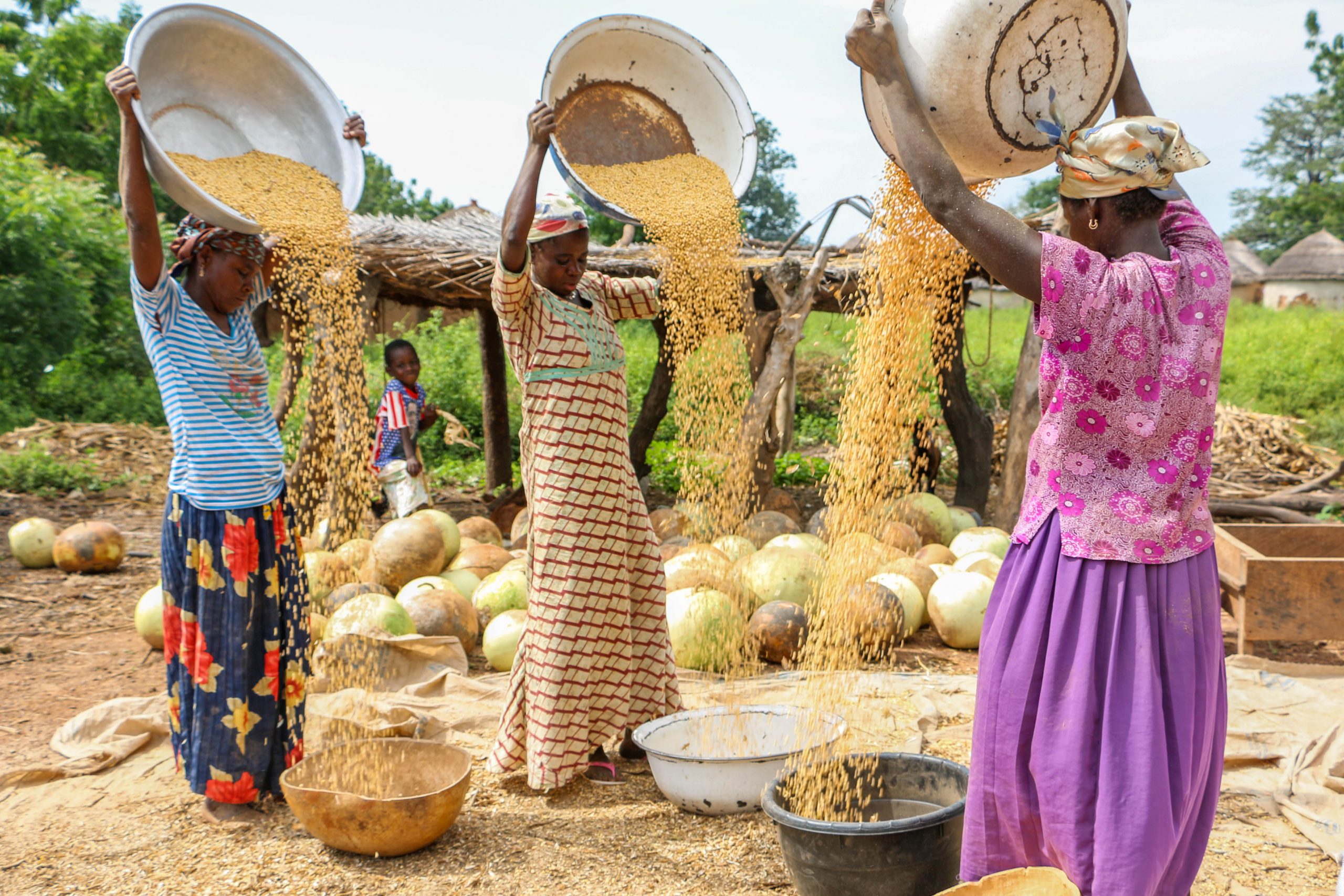
Transforming the Agricultural Sector Through Increased Competitiveness
The Ghana Agricultural Development and Value Chain Enhancement (ADVANCE) II project supports the scaling up of agricultural investments to improve the competitiveness of the maize, rice, and soybean value chains in Ghana. The project adopts a facilitative value chain approach, where smallholder farmers are linked to markets, finance, inputs, equipment, and information through larger commercial farmers and traders who have the capacity and incentive to invest in smallholder production. These linkages build the capacity of smallholder farmers to increase the efficiency of their farm businesses with improved production and post-harvest handling practices. Uniquely, the ADVANCE II model supports emerging commercial agriculture and smallholders simultaneously.
Objectives
- Increase agricultural productivity in rice, maize, and soy value chains
- Increase adoption of agricultural technology (e.g., hybrid seed, mechanization, climate-smart practices, etc.)
- Increase market linkages
- Strengthen local capacity for advocacy and development
Activities and Approaches
- Facilitate local commercial agricultural services for smallholders (e.g., tractor services, threshing, advisory)
- Facilitate agricultural finance for emerging commercial and smallholder farmers
- Demonstrate technology packages (hybrid seed, fertilizer, good agricultural practices) in cooperation with input suppliers (e.g., Dupont Pioneer, Yara, etc.)
- Facilitate linkages between buyers and sellers through annual pre-planting and pre-harvest agricultural fairs
- Create sustainable opportunities for women and men along targeted value chains, as well as identify and address gender inequality with public and private sector awareness building and strengthened networks promoting gender equity
Anticipated/Achieved Project Results
- 30 percent increase in participating farmer income
- 100,000 direct project beneficiaries
- 60,000 farmers will apply new technologies




